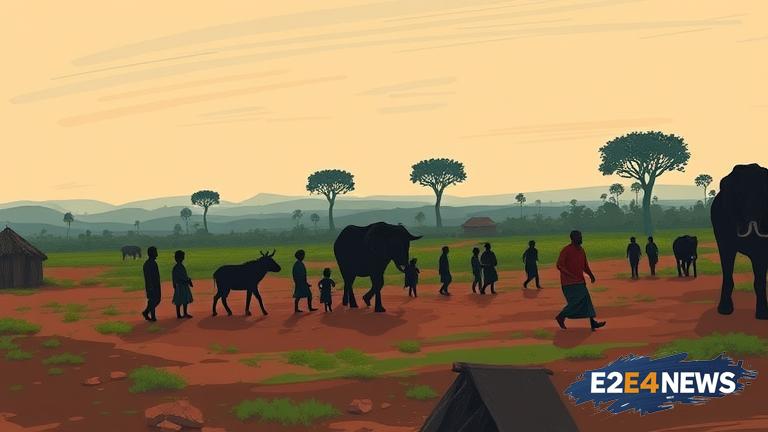Uganda is currently facing a significant influx of refugees fleeing from neighboring countries due to escalating conflicts. The country is expected to host nearly 1 million refugees by the end of 2025, according to recent reports. This surge in refugee numbers is largely attributed to the ongoing conflicts in the Democratic Republic of Congo, South Sudan, and Burundi. The refugees are seeking safety and protection in Uganda, which has been praised for its open-door policy towards refugees. However, the increasing number of refugees is putting a strain on the country’s resources, including food, water, and shelter. The Ugandan government has been working closely with the United Nations High Commissioner for Refugees (UNHCR) to provide assistance to the refugees. Despite the challenges, Uganda has been commended for its efforts in providing protection and assistance to the refugees. The country has also been working to promote self-reliance among the refugees, through initiatives such as vocational training and livelihood support. The refugees are also being integrated into the local communities, with many being settled in rural areas. However, the integration process has not been without challenges, with some local communities expressing concerns about the impact of the refugees on their resources. The Ugandan government has been working to address these concerns, through initiatives such as community outreach and sensitization programs. The international community has also been providing support to Uganda, with many organizations and countries providing funding and technical assistance. The UNHCR has been playing a key role in coordinating the response to the refugee crisis, working closely with the Ugandan government and other partners. The agency has been providing support in areas such as shelter, food, and healthcare, as well as promoting self-reliance and integration among the refugees. Despite the progress made, there are still significant challenges that need to be addressed, including the need for more funding and resources. The refugee crisis is also having a significant impact on the environment, with many refugees being settled in areas that are prone to environmental degradation. The Ugandan government and its partners are working to address these challenges, through initiatives such as reforestation and sustainable land management. The refugee crisis is a complex issue that requires a comprehensive and coordinated response. The international community needs to provide more support to Uganda, including funding and technical assistance, to help the country address the challenges posed by the refugee crisis. The Ugandan government also needs to continue working to promote self-reliance and integration among the refugees, while also addressing the concerns of the local communities. With the right support and resources, Uganda can continue to provide protection and assistance to the refugees, while also promoting sustainable development and environmental protection. The country’s open-door policy towards refugees is a model that can be emulated by other countries, and its efforts to promote self-reliance and integration among the refugees are a testament to its commitment to finding durable solutions to the refugee crisis. The refugee crisis is a global issue that requires a global response, and Uganda is playing a key role in providing protection and assistance to those in need. The country’s experience in hosting refugees can provide valuable lessons for other countries, and its commitment to finding durable solutions to the refugee crisis is an example that can be followed by others. The international community needs to continue providing support to Uganda, including funding and technical assistance, to help the country address the challenges posed by the refugee crisis. With the right support and resources, Uganda can continue to provide protection and assistance to the refugees, while also promoting sustainable development and environmental protection.
